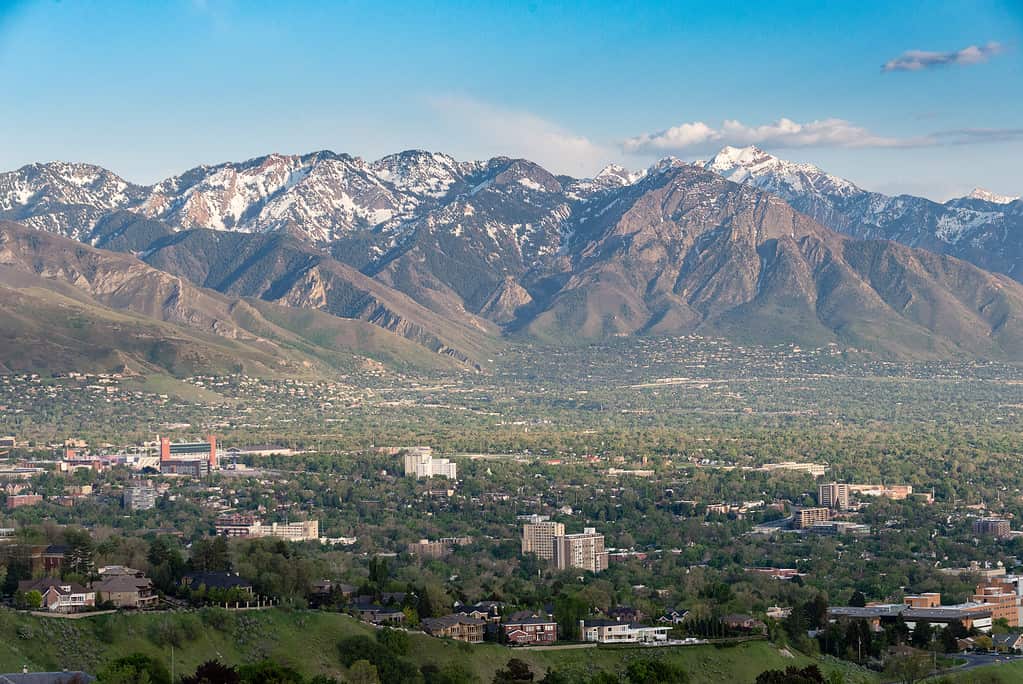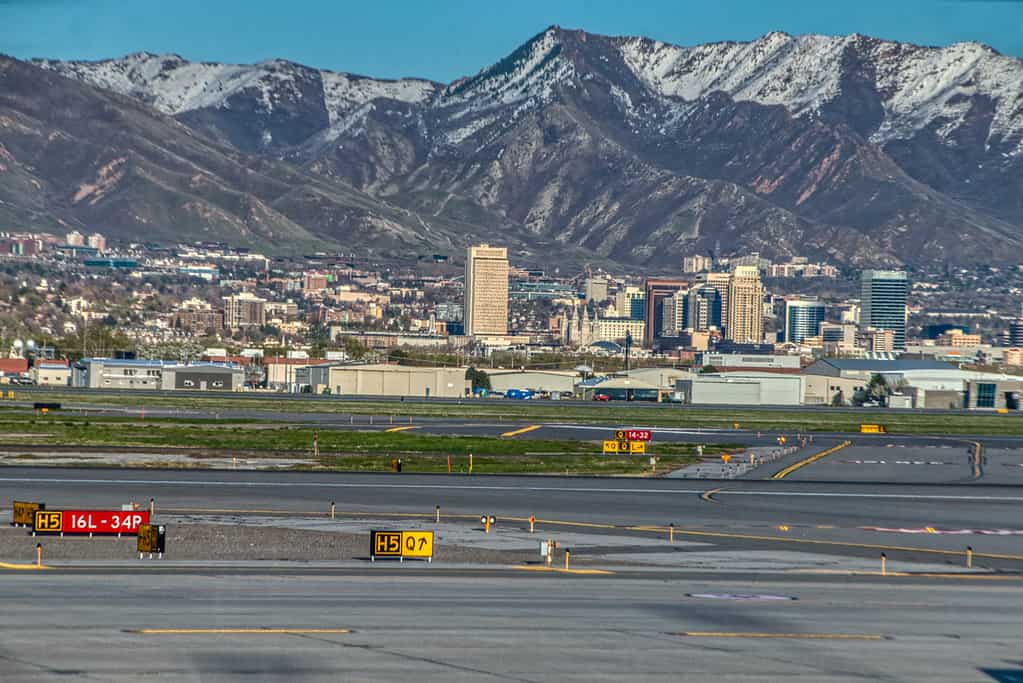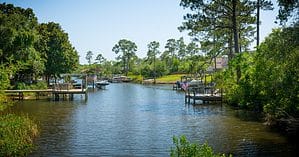Utah offers a lot in terms of wildlife and beauty, but some of its cities aren’t the cleanest. The dirtiest city in Utah is Salt Lake City according to LawnStarter. It’s the 70th-dirtiest city in the United States and the only city in Utah to make the list of America’s dirtiest cities.
Where Is Salt Lake City?
Salt Lake City is in northern Utah and it serves as state capital. It’s the most populous city in the state with a population of 200,478 and 1.25 million residents in the metro area.

Salt Lake City is situated in a valley between the Wasatch and Oquirrh Mountains.
©Cavan Images/iStock via Getty Images
Why is Salt Lake City the Dirtiest City in Utah?
There are a few reasons that Salt Lake City is so dirty, but the main reason is pollution from motor vehicles. Around 55% of the city’s emissions come from motor vehicles, with the rest coming from various sources. One of those sources is Salt Lake City International Airport, with the many jet engines that arrive and depart daily.
Another reason that the pollution is so bad in Salt Lake City is because it’s in a valley. In the winter, warm air can settle on top of the valley and basically ‘cook’ the whole city. The extra warmth causes more particulate pollution to build up. With more particulate pollution and a higher level of ozone, resident health becomes at risk. Ozone is damaging to the airways, making it hard to breathe as deeply.

Salt Lake City Airport sees more than 300 nonstop flights daily.
©Jacob Boomsma/iStock / Getty Images Plus via Getty Images
How Does the Salt Lake City’s Pollution Problem Impact Health?
As mentioned, high levels of ozone can cause breathing problems for humans, but it can also affect animals. The pollution doesn’t just stay in the city, it spreads through the air and impacts areas around Salt Lake City as well. Animals are no more protected than we are, and they can suffer respiratory issues from the city’s pollution. Even miles away, animals can feel the impacts of the city’s air quality.
When air quality is very bad, the city will put out warnings to limit outside time. These warnings apply to both humans and pets. While the air pollution causes negative effects, the loss of outdoor time caused by pollution also contributes to poor health and mood.
The photo featured at the top of this post is © Sean Pavone/Shutterstock.com
Thank you for reading! Have some feedback for us? Contact the AZ Animals editorial team.







